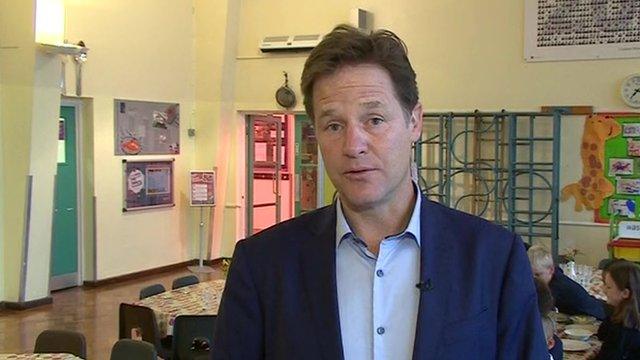Ashya King allowed to fly to Prague for treatment
- Published
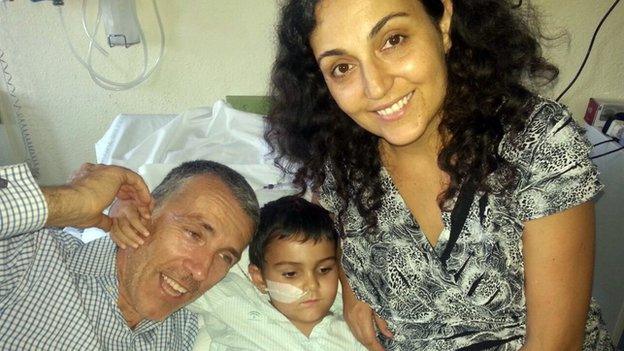
Brett and Naghemeh King were reunited with Ashya at the hospital in Malaga where he is being treated
The parents of five-year-old brain tumour patient Ashya King have been given permission by the High Court to take him to Prague for treatment.
The Proton Therapy Center in the Czech capital said the boy was likely to go there after the weekend.
Parents Brett and Naghemeh King removed Ashya from Southampton General Hospital on 28 August after disagreeing with doctors about his treatment.
They were later arrested in Spain under a European Arrest Warrant.
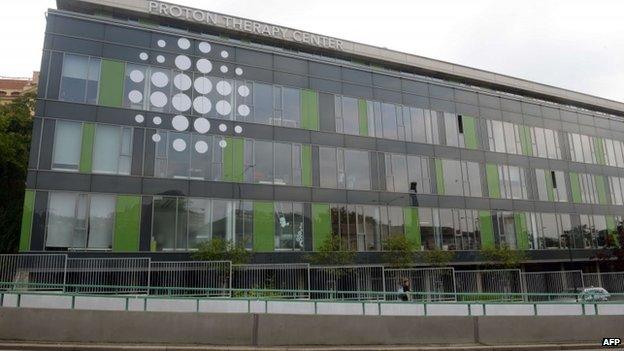
Ashya is to travel to the Proton Therapy Center in Prague
Ashya was made a ward of court at the request of Portsmouth City Council, but the court ruled that status would end when he arrives at the Proton Therapy Centre in Prague.
The clinic said they "do not expect" Ashya to arrive over the weekend, with Monday being the likely earliest time he would arrive.
A spokesperson for University Hospital Southampton NHS Foundation Trust said: "Today's judgement will allow Ashya to get the treatment he urgently needs without any further delays.
"Throughout the period that we cared for Ashya and over the last few days, our only interest has been his health, medical treatment and welfare.
"We will continue to support any clinicians involved in his future care with advice and information."
Lawyers representing the Kings had earlier been discussing his case at the High Court in a hearing conducted by telephone and involving UK and Spanish lawyers.
Mr Justice Baker approved a treatment plan after telephone discussions with legal teams representing both Mr and Mrs King and Southampton General Hospital.
The judge was told - on Tuesday - that Mr and Mrs King wanted their son to receive proton beam radiotherapy.
A lawyer representing hospital bosses said doctors aimed to provide chemotherapy but not proton beam therapy. Vikram Sachdeva said such treatment could not be provided in Britain.
.jpg)
Naghemeh and Brett King spent more than 24 hours in a Spanish jail
The Kings sparked a Europe-wide alert last week when they took their son out of a hospital ward without doctors' consent. They were arrested and held in Spain before a European Arrest Warrant was withdrawn, and they were reunited with their son.
Portsmouth City Council began family court litigation following Ashya's disappearance, asking for directions about the youngster's treatment.

Ashya King's legal status
Portsmouth City Council made the request for a temporary wardship order on 29 August, following a request from Southampton General Hospital and Hampshire Constabulary, while Ashya's whereabouts were unknown
The order specifically related to Ashya's medical care and required him to be taken to the nearest appropriate hospital
Following a hearing on 2 September the case was adjourned to allow the parents to put forward their proposals for Ashya's treatment
He remains a ward of court and no decision about Ashya's future can be taken without the court's approval
If there is a dispute between the parents and the medical authorities as to the right course of treatment, the court will make the decision
If the two sides are in agreement, the court will endorse that agreement to allow treatment to begin

The Portsmouth Local Safeguarding Children Board, external (PSCB) has announced it will hold a review of the Ashya King case.
Chair of the independent watchdog Reg Hooke said: "I believe it is essential that the PSCB independently review the circumstances that resulted in Mr and Mrs King feeling it necessary to take their son Ashya from Southampton General Hospital to Spain, the response of the authorities in seeking to secure Ashya's wellbeing, and the consequences of that response."
He said he hoped the Kings would participate in the review and its findings would be made public.
- Published4 September 2014
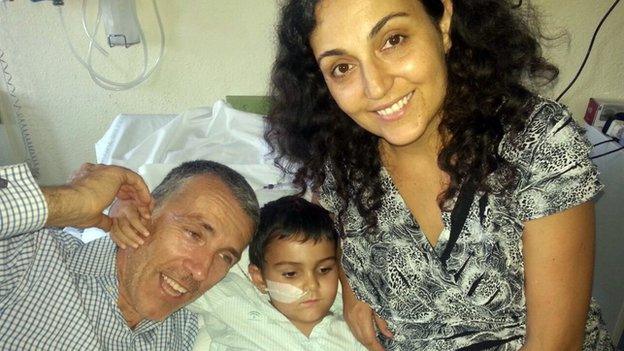
- Published3 September 2014

- Published3 September 2014
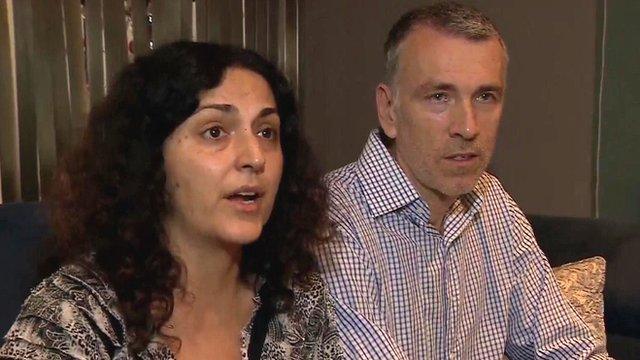
- Published3 September 2014
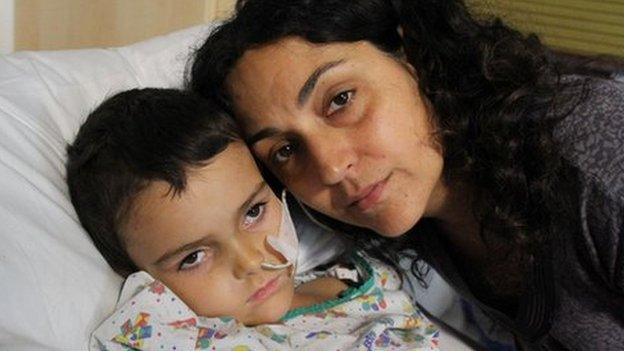
- Published3 September 2014
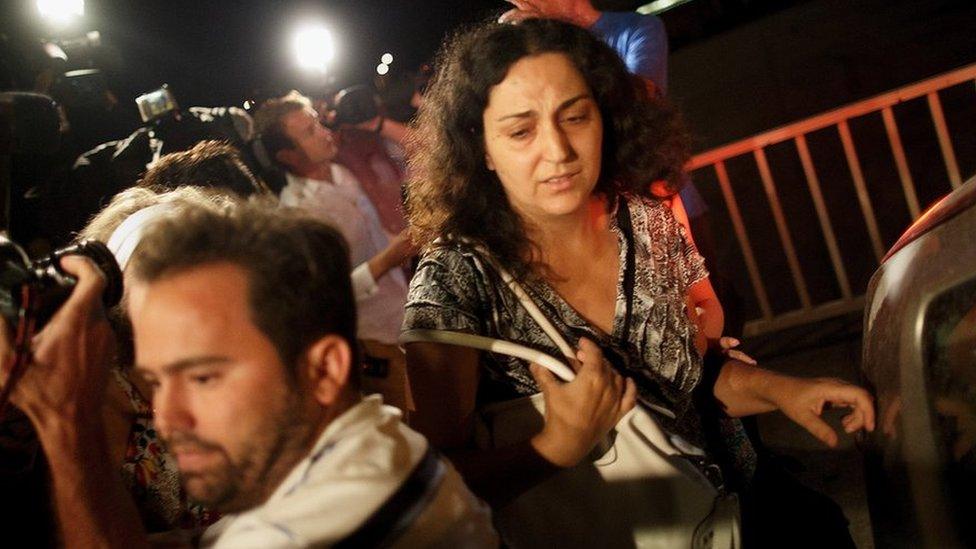
- Published3 September 2014
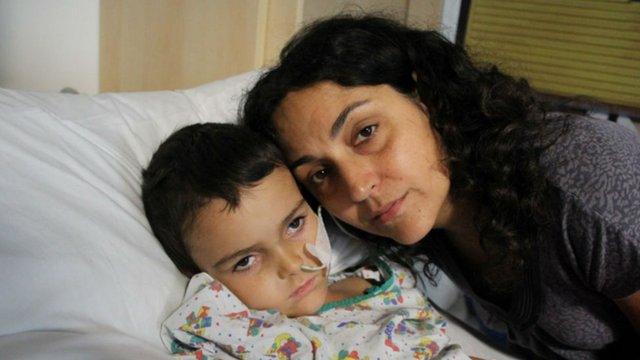
- Published2 September 2014
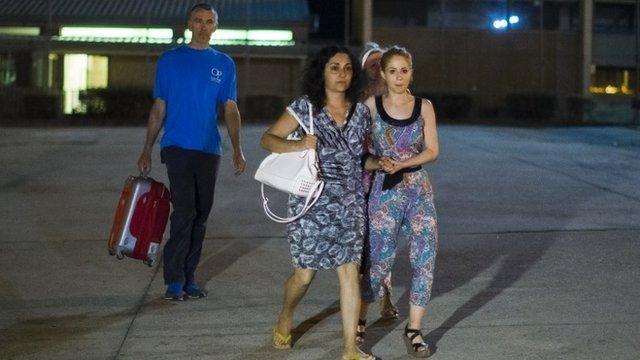
- Published2 September 2014
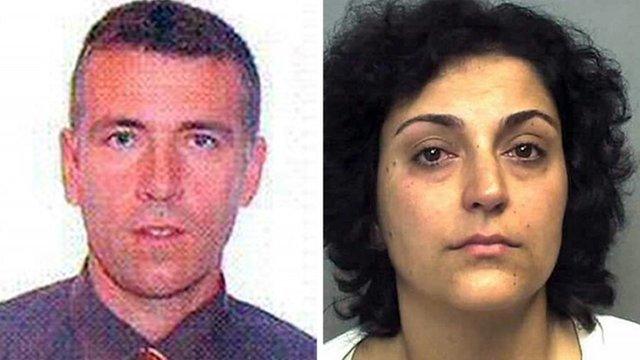
- Published2 September 2014
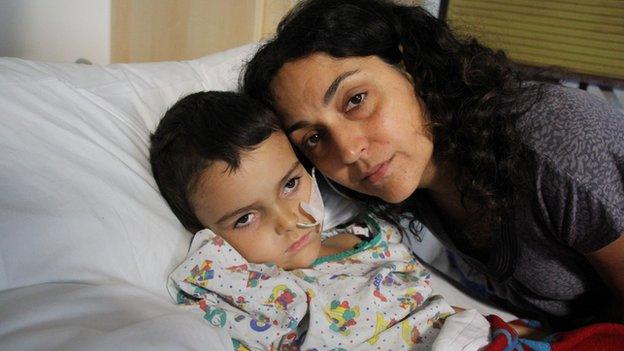
- Published2 September 2014

- Published2 September 2014
